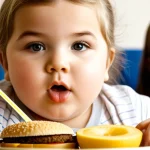Key Drivers of UK Sports Resurgence
The UK sports resurgence is primarily propelled by strategic government investment and policy support. This backing includes targeted funding that prioritizes both elite performance and grassroots sports initiatives. By channeling resources into infrastructure, equipment, and athlete development programs, the UK government has created a robust foundation for sustained sporting success.
Grassroots initiatives play a crucial role in building the talent pipeline. These programs encourage widespread participation, identifying future athletes early. They also foster community engagement, which in turn supports the growth of sports culture nationwide.
Another vital factor driving sports success is the professionalisation and investment in coaching excellence. Elevated coaching standards improve athlete performance by offering specialized training, incorporating sports science, and adopting innovative methodologies. This investment ensures athletes receive world-class preparation, contributing directly to the UK’s competitive edge.
In combination, government funding, grassroots development, and enhanced coaching collectively form the bedrock of the UK sports resurgence. These elements work synergistically, ensuring long-term benefits and helping maintain the country’s position as a leader in international sports.
Major Recent Successes Across UK Sports
Recent UK sports achievements have showcased the nation’s rising prominence across multiple disciplines. Notably, UK sports wins have been recorded in football, rugby, athletics, cricket, and cycling, demonstrating versatility and depth in talent. For example, football teams have secured crucial trophies, while rugby squads reached new competitive heights on the international stage.
Milestone international victories and medals have highlighted individual and team excellence. In athletics, UK competitors have consistently won medals at global championships, underscoring focused investment and training. Similarly, cycling teams have dominated events like the Tour de France and Olympic track races. These successes reflect the cumulative impact of long-term development and targeted support.
Clubs and national governing bodies play a pivotal role in fostering elite talent. They implement structured programs that bridge grassroots participation with professional levels, ensuring a steady flow of athletes ready to compete internationally. Such organizations actively collaborate to offer specialized coaching, access to advanced facilities, and sports science expertise, which are critical components for recent UK sports achievements.
Together, these factors create a strong environment for continuous UK sports wins, firmly establishing the country’s prowess in the global sporting arena.
Lessons for Stakeholders in the Sports Ecosystem
Effective talent identification is a cornerstone among lessons for sports administrators aiming to sustain the UK’s upward trajectory. Early detection of promising athletes enables targeted athlete development programs that nurture skills and resilience. A clear, structured support pathway helps young talent transition smoothly from grassroots to elite levels, reducing dropouts and maximizing potential.
For policymakers, the importance of sustained funding and infrastructure cannot be overstated. Sporadic investment risks stalling progress, while consistent support ensures that facilities, coaching, and athlete welfare remain world-class. Government investment should focus not only on immediate results but also on long-term capacity building, balancing elite performance with community access.
Leveraging data and expert insights forms another critical piece of the puzzle. Sports administrators must integrate performance analytics, injury prevention science, and feedback mechanisms to refine training and competition strategies continuously. This solution-oriented approach fosters informed decision-making, helping maintain competitive advantage.
Together, these lessons emphasize a holistic, integrated strategy. By aligning talent pathways, funding priorities, and evidence-based practices, stakeholders can propel the UK sports resurgence forward while addressing challenges effectively.
Broader Social and Cultural Impact
The cultural impact of sports in the UK extends far beyond competitive success. Sports foster national pride by uniting diverse communities under a common identity. This shared enthusiasm helps strengthen social cohesion, as people from different backgrounds come together to celebrate UK sports wins and milestones. The visibility of athletes as role models inspires collective optimism and belonging.
Moreover, the social benefits of UK sports manifest clearly in youth engagement. Programs promoting participation encourage children and teenagers to adopt healthy lifestyles early. This not only improves physical well-being but also contributes to mental health by developing discipline, teamwork, and confidence. Such engagement aids in diverting at-risk youth from negative influences, fostering positive social outcomes.
Sports also drive community development through targeted initiatives that transform local environments. Investment in accessible facilities creates safe, active spaces that encourage participation across all ages. Case studies have shown how community-led sports initiatives can revitalize neighborhoods, support social integration, and stimulate local economies. These impacts emphasize sports as a powerful tool for broad social change, reinforcing the importance of continued support for grassroots and inclusive sports programs.






